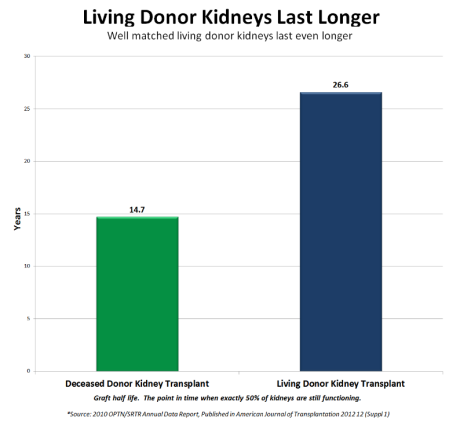New York may soon exchange healthcare for kidneys
Healthcare. Free healthcare in exchange for a kidney? New York State Sen. James Skoufis introduced a bill in early November to provide lifetime healthcare, with premiums paid for by the state, to anyone who donates a kidney.



One good deed deserves another, at least according to New York State Sen. James Skoufis.
In a bid to encourage an increase in altruism, Skoufis, D-39, introduced a bill in early November to provide lifetime healthcare through the state's insurance exchange to anyone in the state who donates a kidney.
“People are dying every day waiting for a kidney transplant, and New York’s waitlist for kidney donations is the third longest in the country,” Skoufis said. “There is a disproportionately low number of people who are live kidney donors and overwhelming demand for donations in our state.”
According to Skoufis’ office, there are more than 8,000 people in New York State currently waiting for a kidney transplant and only 347 people have served as living kidney donors through the first 10 months of this year.
“Clearly, additional, reasonable incentives are required to encourage people to make such an altruistic sacrifice,” Skoufis said. “People who are selfless enough to donate a kidney should be provided with the peace of mind that they will never have to worry about health insurance."
According to the National Kidney Foundation, one healthy kidney can work as well as two, as testing has shown that a transplanted kidney can increase in size and function to compensate.
Although kidneys are the most common of organs donated by a living donor, a lung or part of a lung, part of the pancreas, part of the intestines or one of the liver lobes can be donated as well, according to HHS.
Ideal candidates for kidney donation should be in good overall physical and mental health and 18 years of age and older, according to the United Network for Organ Sharing. UNOS is the private, non-profit organization that manages the nation’s organ transplant system under contract with the federal government.
According to Skoufis, the healthcare plan would be a gold level plan in the New York State of Health marketplace, with premiums paid for life by the state.
“I think a big hang-up preventing people from donating is the assumption that if something happens to their health, their insurance company might not cover the costs because they had this elective surgery,” he said. “This bill covers donors for life so that they never have to worry about their insurance company penalizing them for making this selfless, life-saving decision.”
In New Jersey, there are approximately 2,300 people waiting on the transplant list for a kidney according to HHS.
New Jersey state Sen. Steven Oroho, R-24, said that, while he appreciates the general intent of the bill, he is worried about potential ethical issues.
“You start to get into some of the same ethical issues as ‘body parts for sale,’” he said. “You’re essentially placing a monetary value on a body part donation.”
For fellow New Jersey state Sen. Joseph Pennacchio, R-26, the main problem with the bill is the question of cost.
“Who would pay for it?” he said.
The program will be funded through a newly-authorized kidney donor insurance fund that will be established within the budget process, Skoufis said.
Although the costs associated with the new fund are projected to be substantially lower than the expenses associated with dialysis required for people on the transplant list, the bill still requires fiscal analysis, Skoufis’ office said.
In a position statement, Dr. John P. Roberts, of the American Society of Transplant Surgeons, said there is little fear that offering health insurance to altruistic kidney donors will lead to an increase in donations by the desperate or economically disadvantaged.
“This seems unlikely as the insurance is of little value to anyone other than the donor, so it would have no market value,” Roberts said. “One could imagine that someone who is employed could benefit from not having to enroll in a corporate insurance program and save a few thousand dollars per year, but this is hardly enough for those desperate for the quick buck or the economically disadvantaged.”
The ASTS would like to see a bill introduced in congress that would provide lifetime Medicare coverage for living kidney donors.
Skoufis said he had no concerns about the proposed legislation being misused by people looking for free health insurance.
“If people take advantage of this, it means that more people are donating kidneys, showing that the program is doing exactly what it's designed to do,” he said.
The Assembly version of the proposed legislation is being sponsored by New York State Assemblyman Angelo Santabarbara, D-11, Skoufis said.
Currently in committee, the bill will take effect immediately if signed into law and will apply to all altruistic kidney donations.